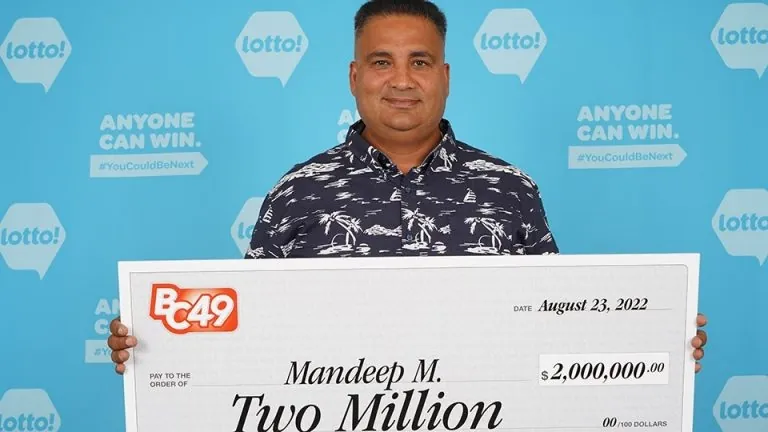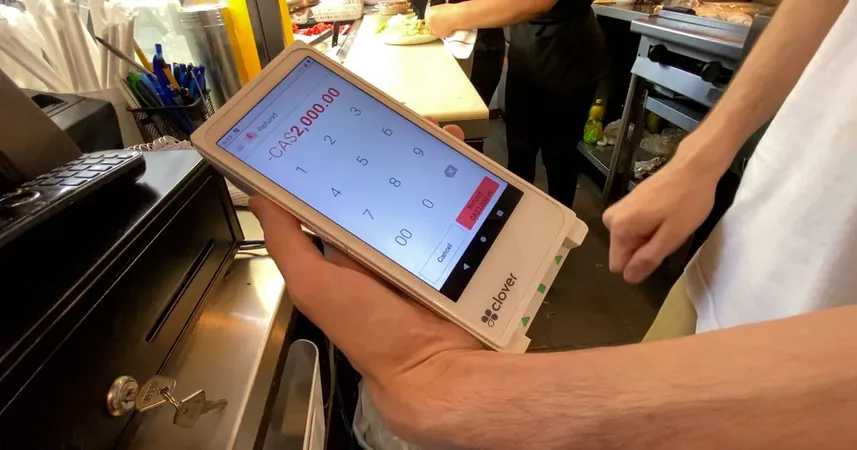
Workplace Lotto Pool Drama: B.C. Man Keeps $2M Jackpot as Court Settles Controversy!
2025-01-13
Author: Jacob
Workplace Lotto Pool Drama: B.C. Man Keeps $2M Jackpot as Court Settles Controversy!
In a shocking turn of events, a $2 million lottery jackpot has ignited a fierce legal battle among co-workers in British Columbia, culminating in a decisive ruling from the Supreme Court. The case serves as a stark reminder that windfalls, meant for celebration, can sometimes lead to heartbreak and disputes.
Justice Y. Liliane Bantourakis delivered her ruling last week after examining the contentious details surrounding Mandeep Singh Maan’s stunning lotto victory, which he secured with a BC/49 ticket he purchased in August 2022. Maan was part of a workplace lotto pool consisting of four colleagues: Balvinder Kaur Nagra, Sukhjinder Singh Sidhu, Binipal Singh Sanghera, and Jeevan Pedan.
The turmoil began when Maan did not immediately inform his co-workers about the life-changing win. Instead, it was social media that spilled the beans—11 days later, Maan's photo holding the million-dollar cheque went viral. What initially started as congratulatory messages from his colleagues quickly turned into suspicion and legal contention.
Just two weeks after the news broke, Maan's co-workers launched a lawsuit, claiming that the winning ticket was purchased as part of their group’s pooled funds, and thus, the winnings should be divided among them. Maan, however, staunchly defended his position, asserting full ownership of the ticket and the jackpot.
The pivotal question before the court was whether the winning ticket was indeed a group purchase or an individual acquisition. Complicating matters, there was no written agreement defining the terms of their lotto pool, leading to conflicting testimonies regarding the frequency of ticket purchases and how they communicated their group efforts. Notably, it was agreed that members were free to buy their own tickets, a point Maan emphasized in his defense.
Maan described himself as an avid lottery player who regularly bought tickets independently. He revealed to the court that he spent about $400 monthly on various lottery games, a passion ignited years ago when he won a washing machine in a lottery in India. The judge further scrutinized records from the gas station where Maan bought the winning ticket, which indicated he only spent $12 on a mix of BC/49 and Lotto 6/49 tickets.
This evidence proved crucial. The judge noted the collective betting for the office pool typically hovered around $50 or more per ticket, suggesting Maan did not use pooled funds for his lucky purchase.
The court also addressed another argument from Maan's co-workers, who claimed that even if Maan didn't use pooled money for the winning ticket, he had a moral obligation to buy tickets for the group on that fateful day in August. However, Bantourakis ruled there was no binding agreement necessitating Maan to purchase tickets for the group, thereby dismissing their claim for a share of the jackpot.
"While the plaintiffs may feel they have a moral claim to the winnings, they have not proven any legal entitlement," the judge explained. The court ultimately ruled in favor of Maan, allowing him to keep the entirety of the jackpot and also entitled him to recover legal costs from the plaintiffs.
This case serves as a cautionary tale for workplace lottery pools: always establish clear agreements ahead of time, or risk losing not just the jackpot, but also friendships and workplace harmony!









 Brasil (PT)
Brasil (PT)
 Canada (EN)
Canada (EN)
 Chile (ES)
Chile (ES)
 Česko (CS)
Česko (CS)
 대한민국 (KO)
대한민국 (KO)
 España (ES)
España (ES)
 France (FR)
France (FR)
 Hong Kong (EN)
Hong Kong (EN)
 Italia (IT)
Italia (IT)
 日本 (JA)
日本 (JA)
 Magyarország (HU)
Magyarország (HU)
 Norge (NO)
Norge (NO)
 Polska (PL)
Polska (PL)
 Schweiz (DE)
Schweiz (DE)
 Singapore (EN)
Singapore (EN)
 Sverige (SV)
Sverige (SV)
 Suomi (FI)
Suomi (FI)
 Türkiye (TR)
Türkiye (TR)
 الإمارات العربية المتحدة (AR)
الإمارات العربية المتحدة (AR)